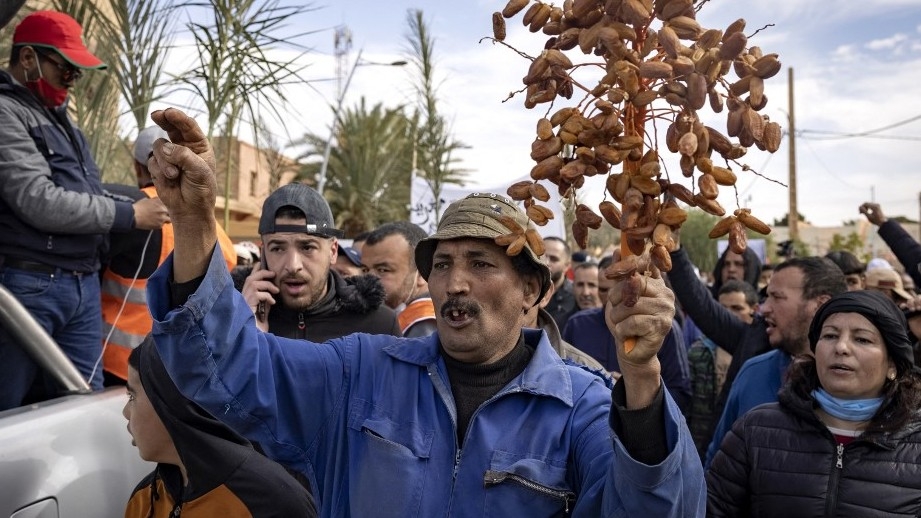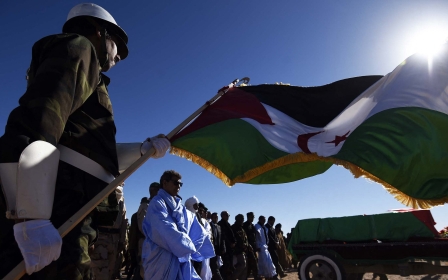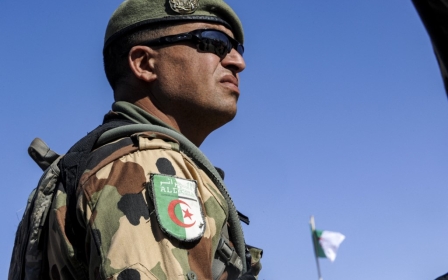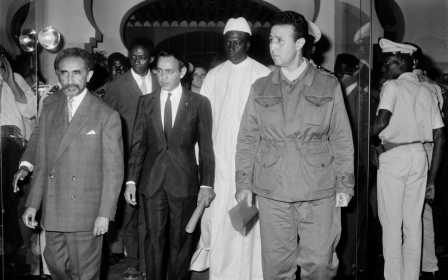Moroccans call for boycott of 'radioactive' Algerian dates

Social media campaigners in Morocco have called for the boycott of Algerian dates over claims they might contain toxic substances from radioactive pollution caused by past French nuclear experiments.
The Moroccan campaign claimed Algerian dates were polluted with chemicals that can lead to illnesses due to their cultivation near the Algerian Sahara, where France conducted nuclear testing in the 1960s during its colonisation of the North African nation.
The first test on 13 February 1960, near Reggane in the Sahara Desert, had a destructive power of 70 kilotons, more than four times that of the US bomb dropped on Hiroshima at the end of World War Two. Thousands of Algerians continue to suffer from the tests' aftermath until today.
Moroccans are using the hashtag #BoycottAlgerianDates to demand that Algerian dates be removed from their shops ahead of the holy month of Ramadan, which is due to start next month.
Stay informed with MEE's newsletters
Sign up to get the latest alerts, insights and analysis, starting with Turkey Unpacked
Translation: With Ramadan approaching, we should all beware of Algerian dates. They contain the remnants of nuclear radiation and are irrigated with waste water. These are a combination of ingredients that may threaten your life and your family's.
Dates are a fixture of the Ramadan dining table for Muslims worldwide, and are enjoyed year-round.
Algeria is one of the world's top date cultivators, producing over 1,000 varieties of dates, including Deglet Nour, a sweet date fruit dubbed the "Queen of dates" and highly sought-after globally.
Algerian dates are mostly farmed in the Sahara between Biskra and Adrar - hundreds of kilometres from the Reggane region where the tests were carried out.
Some users called on consumers to turn to local dates instead of Algerian products.
Translation: We should #BoycottAlgerianDates as we have better ones for the same price, or at least consume dates coming from friendly countries like the UAE and Saudi Arabia.
Last year, a similar social media effort alleged that Algerian dates were infested with "deadly bugs."
The campaign coincided with the expulsion of Moroccan date farmers from the border city of Figuig by Algerian authorities, following tensions on the border that has been closed since 1994.
The recent campaign, which comes amid ongoing diplomatic tensions between Algiers and Rabat, has caused uproar among Algerians, who defended their dates arguing they are "exported to countries across the world and sold in most global markets without any health issues arising".
Translation: How can any Moroccan buy the product of a country that has been seeking for more than 46 years to divide its homeland. Boycotting Algerian dates is a national duty.
In recent months, the North African neighbours' diplomatic relations have deteriorated to the point of near collapse, with Algeria accusing Morocco of attempting to undermine the government and Rabat claiming Algiers is attempting to foment unrest in the disputed Western Sahara territory.
This article is available in French on Middle East Eye French edition.
Middle East Eye delivers independent and unrivalled coverage and analysis of the Middle East, North Africa and beyond. To learn more about republishing this content and the associated fees, please fill out this form. More about MEE can be found here.




